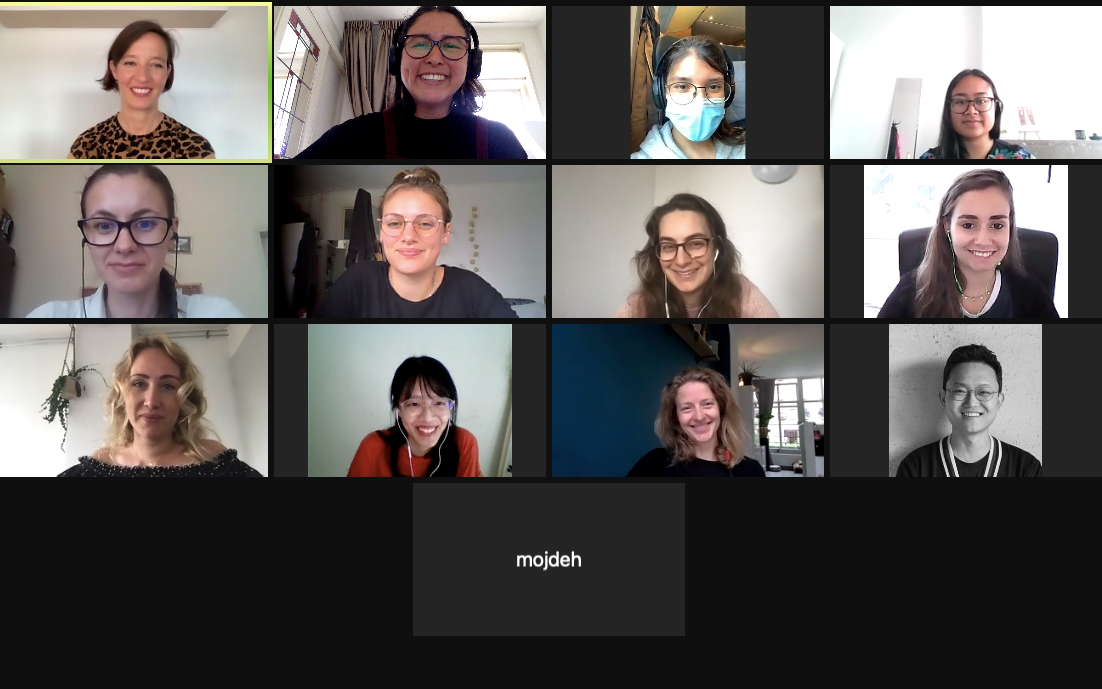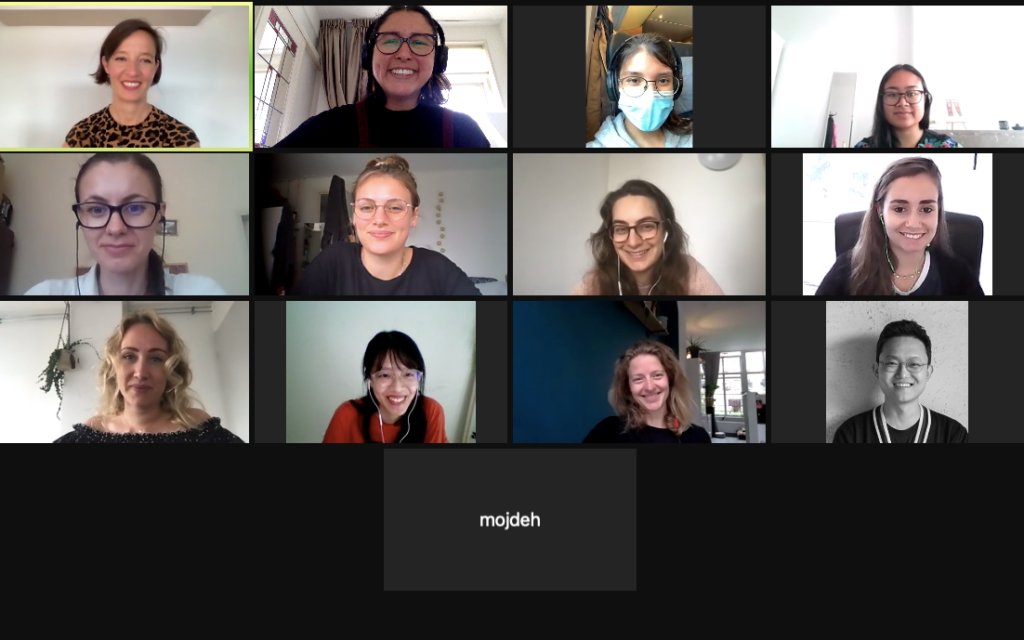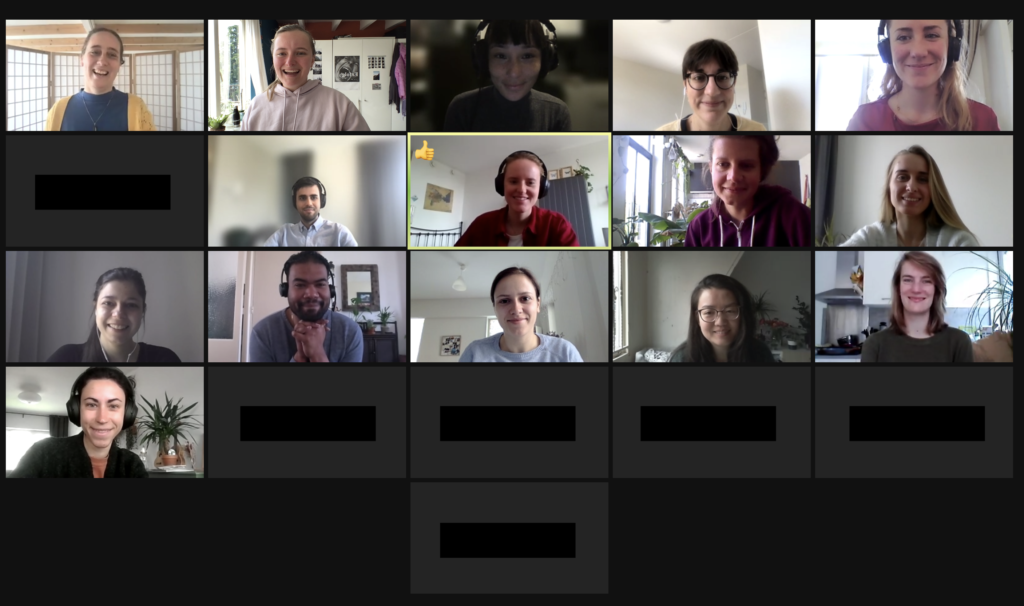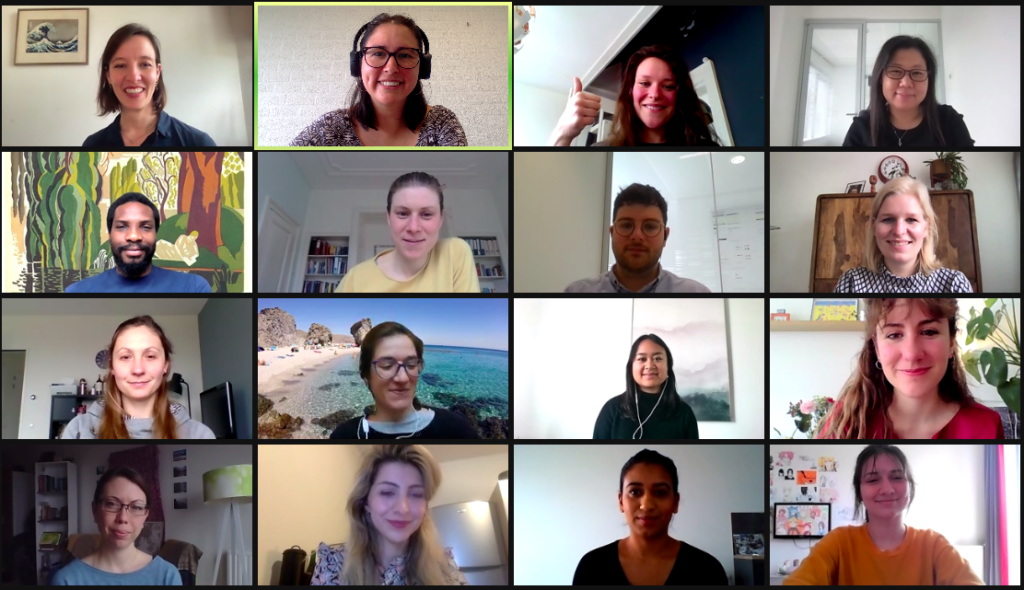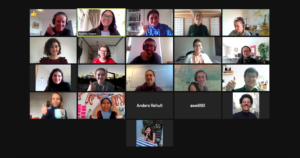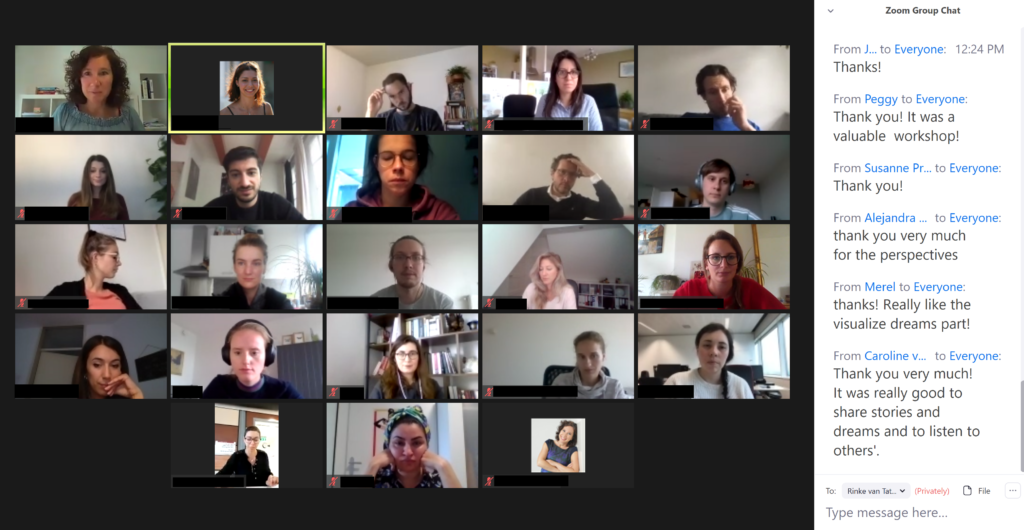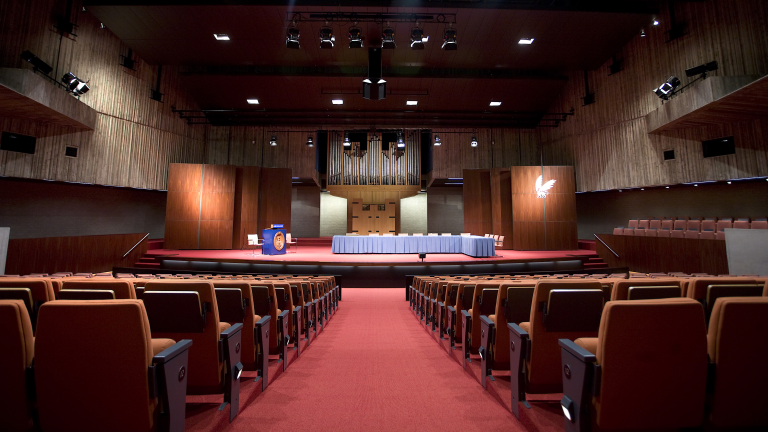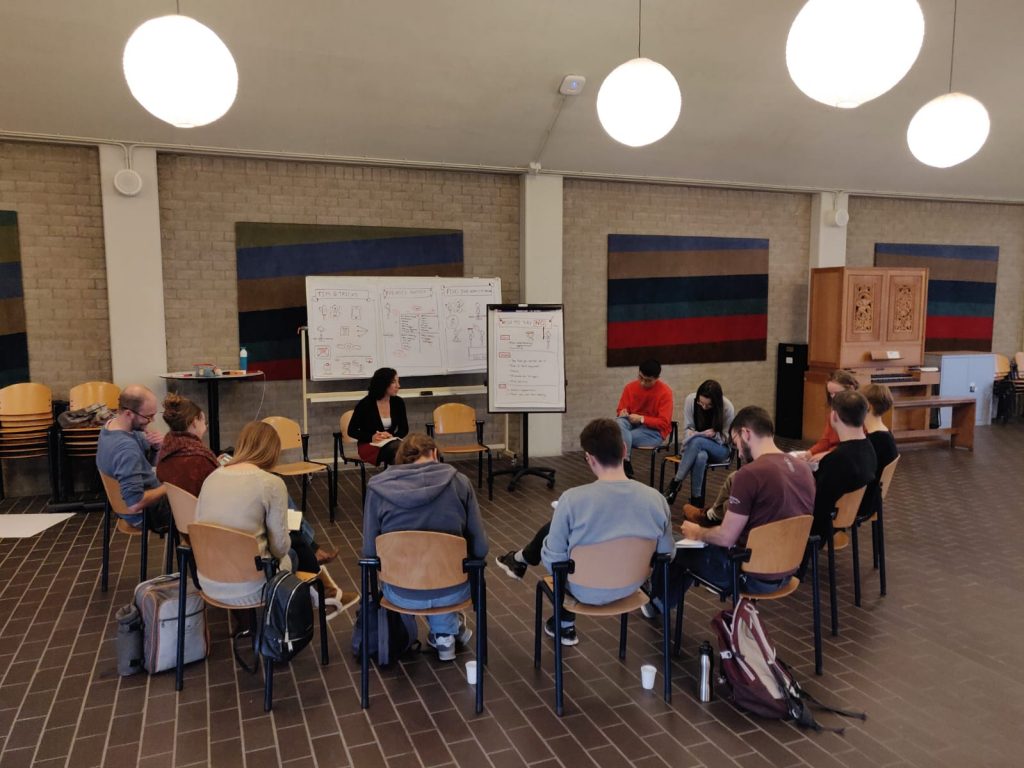PhD candidates and postdocs have many responsibilities besides working on their research. Supervising students is one of them. As young researchers, we are expected to know how to provide constructive feedback or how to negotiate expectations with bachelor or master’s students. This, of course, is not an easy task.
This offline workshop with Jeanine de Bruin of Hakuna Matata combined theory and practice. The goal was to give a solid foundation on relevant topics, such as influencing styles and strategies to provide direct and clear feedback. At the same time, Jeanine gave concrete tools to be effective while supervising students. These tools were discussed in a collaborative environment by PhD candidates and postdocs from different disciplines.
You can read more about Jeanine de Bruin at: https://hakunamatata.nl
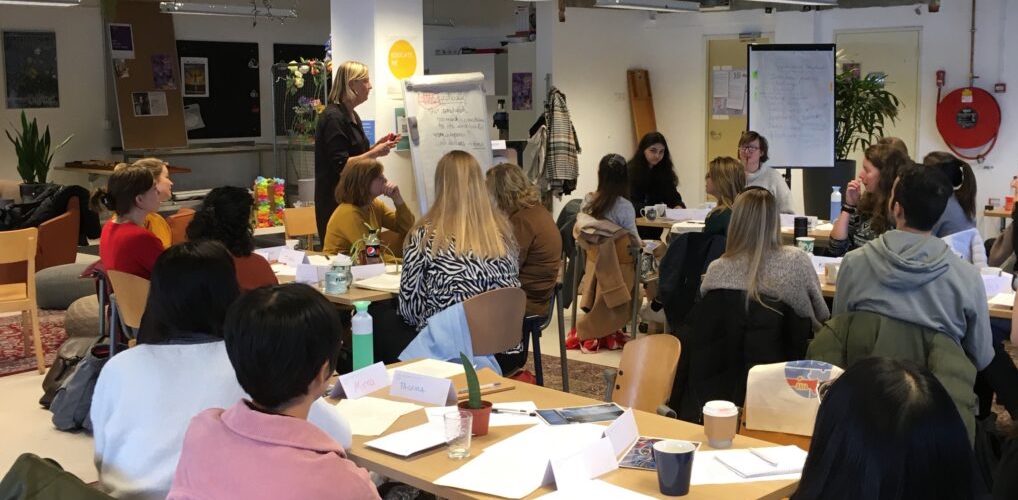
“It was concrete and gave specific tips, being able to learn from my peers”
Anonymous participant
“The teacher and her style was really excellent”
Anonymous participant
“I learned a lot of useful tips and got to know many things I never paid attention to”
Anonymous participant

